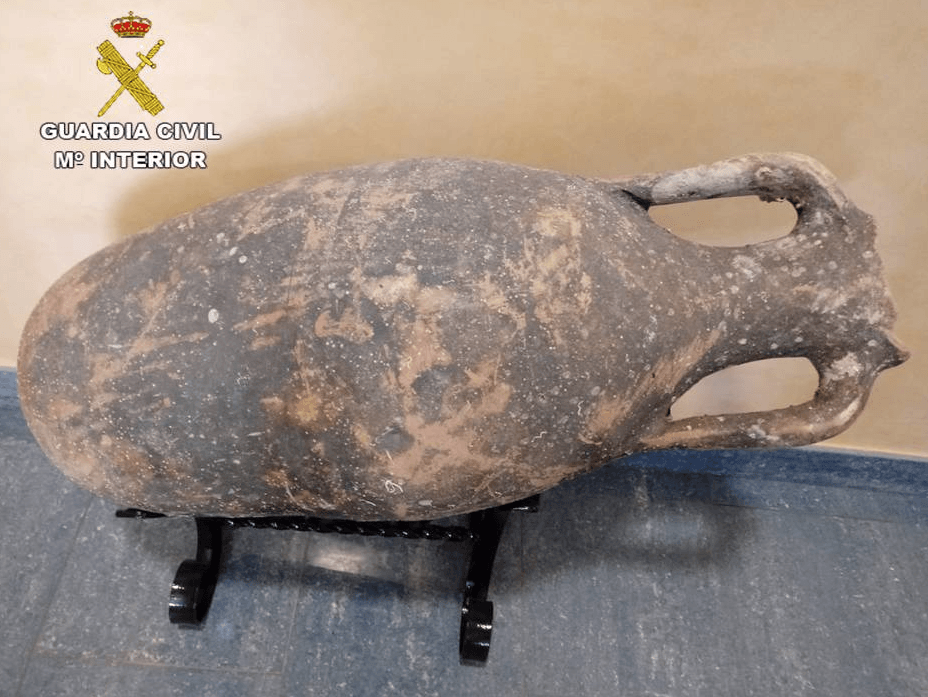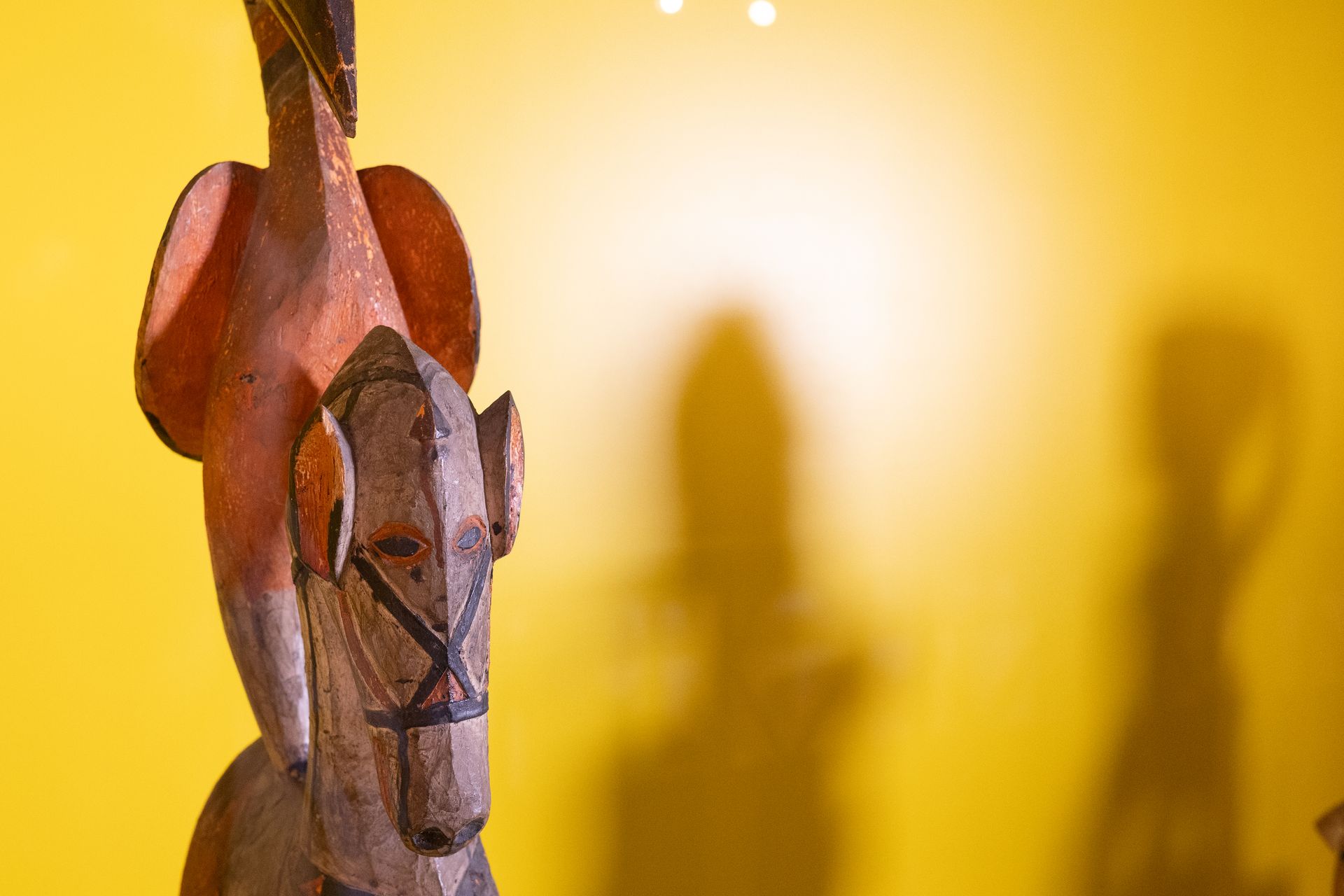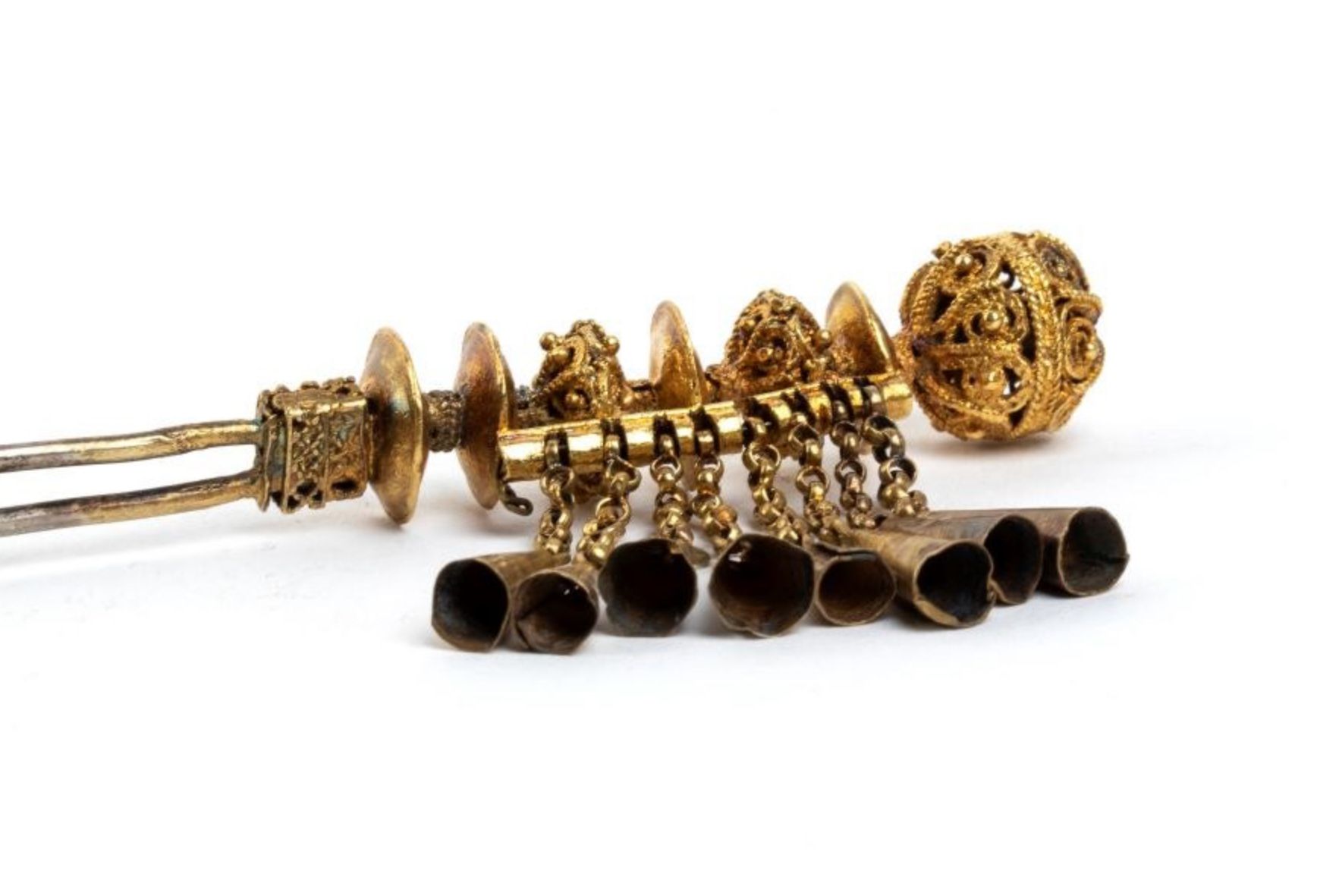Cultural Restitution
SHARE ARTICLE
The coronavirus may have deterred many of us from venturing into restaurants, but it didn’t deter officers of the Spanish Guardia Civil from conducting their routine inspections.
Together with their other responsibilities, the SEPRONA is also charged with leading the fight against looted antiquities. Their persistence seems to have paid off.
During a recent inspection in the Spanish city of Santa Pola, Alicante, a collection of thirteen Roman amphorae, believed to date from the 1st century AD, were discovered decorating a frozen seafood store.
Local media report the artefacts, which also include an 18th century anchor and a limestone plaque with the inscription ‘este’ (the word 'east' in Spanish), were found by the storeowner’s son while out fishing. However, the Guardia Civil suspect something even more fishy!
They suggest the items were probably looted from one or more of the ‘protected’ wrecks found around the Mediterranean.
Storage amphorae of this type were used to ship olive-growers oil from Andalusia to Rome via the Portus Ilicitanus, now known as Santa Pola. They were also used to transport wine and garum, a kind of fish sauce.
While mostly of a common shape and form, and found in different states of preservation, officials at the Santa Pola Sea Museum have nevertheless determined this collection is of ‘great historical value’ and one amphora could be of especially important due to its ‘exclusivity’.
The Guardia Civil is considering whether to charge the store owner and his son with a crime against ‘historical heritage’ and another for acquiring and/or possessing objects knowing their doubtful or illegal origin. In Spain, all archaeological heritage, including items recovered from underwater sites, are protected by the Spanish Historical Heritage Law (SHHL), which ensures the discoverer never has ownership over their discoveries.
A cautionary tale for every local seafood restaurant and a concern for the Mediterranean's cultural heritage.
Photos: Roman amphorae discovered in Santa Pola
Courtesy of Guardia Civil
More News




